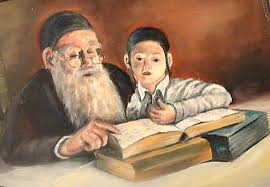
Parents frequently complain: “How are we going to address and meet all our children’s needs?” “It’s so hard to be a parent today.” “How do I make my children happy?” Teachers complain: “Why is he/she so difficult?” “Always with questions, what about answers?” “Some of his/her questions are like attacks on Yiddishkeit, Hashem, or what I’m teaching!”
I address all of these complaints with the following two premises:
Premise #1: We know very little of how and what our students are thinking.
Premise #2: We know very little about our students’ true needs.
How does Hashem give us answers to the questions above? He does it through the children themselves – through their questions, repeated lines and comments, actions and inactions.
The key here is real listening and acknowledging, which Bnainu teaches daily within the Baltimore Jewish community. What are these children telling us? What are they revealing to us? What are they telling us about their basic human needs?
Active listening and empathizing will help us understand our children and students. Acknowledge and repeat in summary (and different words) a child’s question without answering it, offering quick solutions, or resolving it for him. Just show that you heard him.
When children feel heard, they’ll usually follow that with another question or rephrasing of the first with another point or detail. Continue with your acknowledgement. Usually the ending question is much more revealing of their true feeling and need.
It’s been found that often children can resolve their own issue better than we adults can, especially if they feel they’ve been heard. Often they’ll show appreciation for your “being there for them.” This is what is meant by “providing for them” or “liking them.”
I’ll site a few examples of where the above is evident.
A high school student wasn’t very verbal or expressive but showed a lot of passion in her expressions. One time after class she approached me to ask a question on what we had learned. Had I simply answered her question directly and stopped at that, it would have ended right there. She would have thanked me and walked away. I didn’t do that at all. Instead, I repeated her question in different words, rephrasing it a bit to summarize. She then asked another question and another and another, until she asked her real question, which was about the entire foundation of Torah and mitzvos. It was then evident that much discussion would follow. So it was, and our discussion probably turned her life around, giving her new clarity and joy.
Here’s another example: I had a student who came to my yeshiva in ninth grade. In the course of speaking with him and his parents, I could see that his parents didn’t give him much space to talk. One day in my class he asked a question. It was very difficult to understand him because he had a rare and very unique speech impediment: he would start each sentence with the last syllable of the preceding sentence (i.e., “I was learning Gemara. Ra I didn’t understand it”). I realized later that he had formed this run-on way of speaking so he wouldn’t be cut off by his parents.
Instead of answering his question, I told him I wanted to understand him clearly, and asked him to rephrase his question. For whatever reason the second time was clearer and we all understood his brilliant question, which otherwise would’ve been totally lost! It turned out that this young man had refrained from asking questions in class since fifth grade. Unbelievable! From this point on, he began asking freely and intelligently.
Years ago in Baltimore there was a troubled young man who wouldn’t open up to anybody. Many tried different ways and shared empathy and compassion, but with no results. Then along came Molly Koch, who was famous in the 70s for deprogramming kids from missionary cults. She said to this young man, “What you’re going through must be so hard. I really can’t appreciate it totally because I’m not going through it myself.” He melted and ended up pouring out everything in his heart that was troubling him.
In my yeshiva, there was a boy who questioned everything with the introduction of “How do the rabbis know that anyway?” Instead of addressing his negativity, we would repeat his questions and show great attention towards them. One day this same young “rebel” prayed the longest tefillah, changed totally in his middos and attitude, and returned to singing Jewish music as he had in his youth. He went on to learn in Eretz Yisroel, and his family followed him by making aliyah. His issues were resolved partially as a result of our active listening.
I was asked years ago to address Holocaust survivors’ questions following classes that I gave. Once I began answering the questions, I was met with more and more of them. I realized that often it’s not the need for an answer but rather the need for empathy and the support that is offered.
If we view all of our children and students through this lens, they too will open up to us.
For chinuch questions and referrals, call Rabbi Sholom Weingot at 443-690-4418. He’ll give you a real listening ear.






